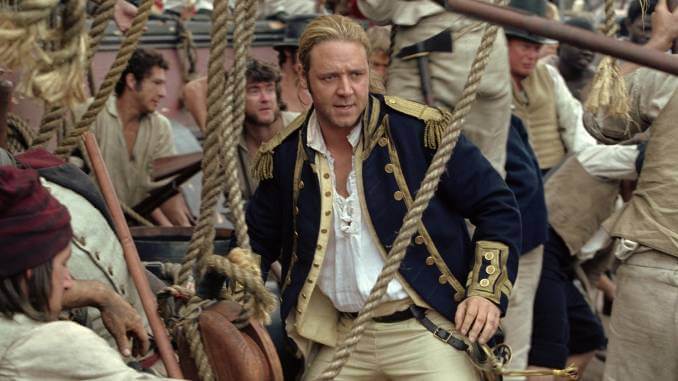Master and Commander: The Far Side of the World Turned Oceans into Battlefields
The much-loved Russell Crowe naval film turns 20

We all want to think we desire movies about the depths of the human condition, about our fallibility in the face of unknowable infinity, about what makes good people stay true in a rotten world. And we do! But sometimes we also want a movie where the boys get together to wreck house, where the bad guys are right over there and the right and dutiful and most expedient course of action is to point a whole lotta guns at ‘em and shoot ‘til you’re empty.
There is no better actor to headline this specific kind of guilty pleasure than Russell Crowe, a guy who seems like he is having the time of his life when he is explaining to other men the precise way in which they are about to kick ass, then telling them about how much faith he has in their ability to kick ass, and then, finally, kicking ass. Crowe, a guy who paid his dues in all manner of quiet and intimate films during his decades coming up in the business, hit it big with one Best Picture winner in 2000, and then it was off to the races.
This is why I think of Master and Commander: The Far Side of the World as the sequel Gladiator never (or at least, has not yet) had. Based on a series of novels about a brave and dutiful captain on a British Navy vessel during the Napoleonic Wars, it of course has nothing to do with Crowe’s earlier picture, but it is a spiritual sequel nonetheless. If Gladiator was a lucky shot, Master and Commander proved the adage coined by Chris Rock, who once said: “If you’re doing a movie about the past, you’d best to get Russell’s ass.”
-

-

-

-

-

-

-

-

-

-

-

-

-

-

-

-

-

-

-

-

-

-

-

-

-

-

-

-

-

-

-

-

-

-

-

-

-

-

-

-








































